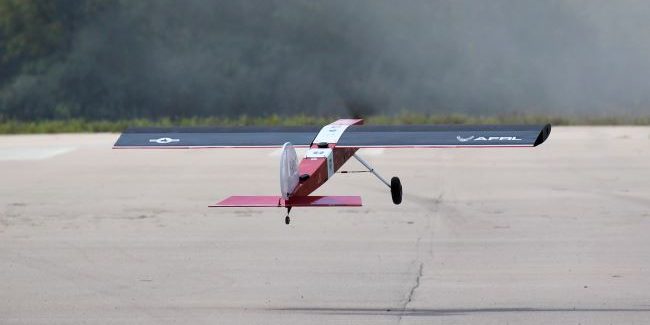The U.S. Air Force Research Laboratory is leading an effort on increasing missile range and lethality against highly maneuverable targets through utilizing active morphing. In this system, morphing is accomplished through articulating the neck region, resulting in high-rate pivoting of the missile forebody. The neck skin of the system is a critical component designed to provide thermal and structural protection to an inner, electronically controlled actuation system. To maintain a smooth outer mold line during articulation, a composite structural design is required for the skin to provide torsional stiffness and bending flexibility. Here, the design and testing of three morphing skin concepts for various Mach regimes will be presented, including results from full-scale sled testing.
This webinar will cover the following topics:
- Design and optimization of structures for morphing weapons
- Composite structure design
- Thermomechanical testing of materials and structures
Registration closed March 5, 2025.


